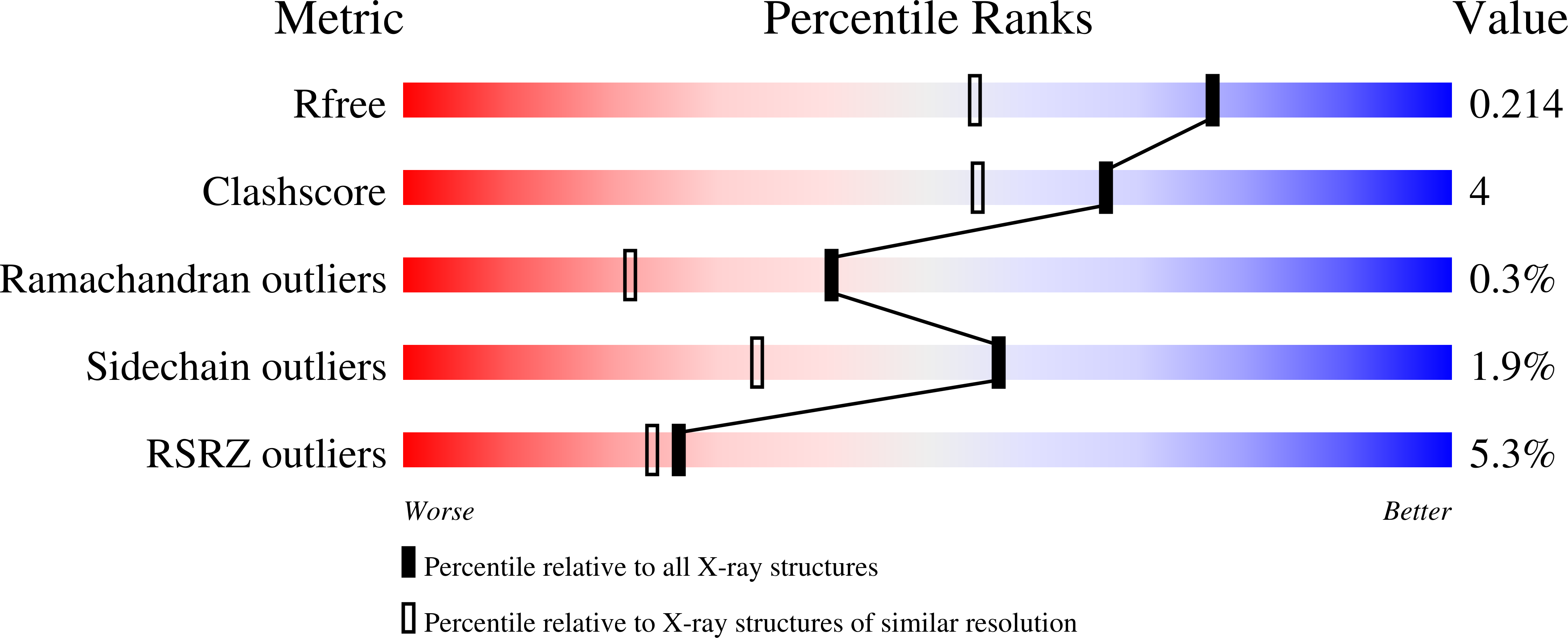Correlation between the binding affinity and the conformational entropy of nanobody SARS-CoV-2 spike protein complexes.
Mikolajek, H., Weckener, M., Brotzakis, Z.F., Huo, J., Dalietou, E.V., Le Bas, A., Sormanni, P., Harrison, P.J., Ward, P.N., Truong, S., Moynie, L., Clare, D.K., Dumoux, M., Dormon, J., Norman, C., Hussain, N., Vogirala, V., Owens, R.J., Vendruscolo, M., Naismith, J.H.(2022) Proc Natl Acad Sci U S A 119: e2205412119-e2205412119
- PubMed: 35858383
- DOI: https://doi.org/10.1073/pnas.2205412119
- Primary Citation of Related Structures:
7Z1A, 7Z1B, 7Z1C, 7Z1D, 7Z1E, 7Z6V, 7Z7X, 7Z85, 7Z86, 7Z9Q, 7Z9R - PubMed Abstract:
Camelid single-domain antibodies, also known as nanobodies, can be readily isolated from naïve libraries for specific targets but often bind too weakly to their targets to be immediately useful. Laboratory-based genetic engineering methods to enhance their affinity, termed maturation, can deliver useful reagents for different areas of biology and potentially medicine. Using the receptor binding domain (RBD) of the severe acute respiratory syndrome coronavirus 2 (SARS-CoV-2) spike protein and a naïve library, we generated closely related nanobodies with micromolar to nanomolar binding affinities. By analyzing the structure-activity relationship using X-ray crystallography, cryoelectron microscopy, and biophysical methods, we observed that higher conformational entropy losses in the formation of the spike protein-nanobody complex are associated with tighter binding. To investigate this, we generated structural ensembles of the different complexes from electron microscopy maps and correlated the conformational fluctuations with binding affinity. This insight guided the engineering of a nanobody with improved affinity for the spike protein.
Organizational Affiliation:
Electron Bio-Imaging Centre, Diamond Light Source, Didcot OX11 0DE, United Kingdom.


















